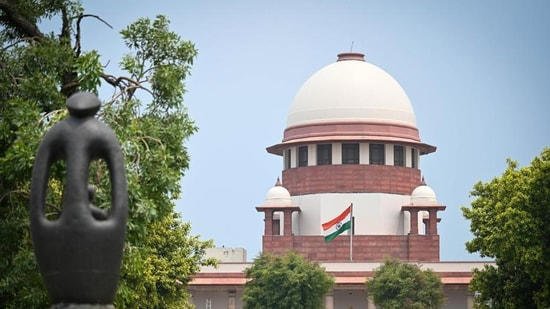The Supreme Court of India recently issued a harsh critique of the implementation of the Graded Response Action Plan (GRAP) Stage IV, calling it an “abject failure” in addressing the severe air pollution in Delhi and the National Capital Region (NCR). In a hearing on November 28, 2024, Justices Abhay S. Oka and Augustine George Masih highlighted significant lapses in enforcing essential pollution control measures. The court’s ruling underscores the urgent need for accountability and swift action to combat air pollution in one of the world’s most polluted urban regions.
Extension of GRAP Measures
The court ordered that all GRAP Stage IV measures continue, excluding those affecting schools, until December 2, 2024. These measures include:
- Ban on Construction Activities: A complete halt on non-essential construction and demolition to control dust pollution.
- Restrictions on Vehicles: A ban on non-essential vehicles entering Delhi, except trucks carrying essential goods.
Criticism of Authorities
The bench expressed frustration with the lack of compliance and enforcement, pointing out the following issues:
- Ongoing construction in prominent areas despite bans.
- Insufficient surveillance at Delhi’s borders allowed trucks to bypass restrictions.
- Lax vehicle checks and weak penalties for violators were major concerns.
Accountability for Failures
The court called the show cause notices under the Commission for Air Quality Management Act insufficient and demanded immediate action. This includes prosecuting errant officials responsible for the failure to enforce GRAP effectively. Additionally, the court flagged reports from Punjab, where officials allegedly advised farmers to burn stubble after 4 PM to evade satellite detection. The court has ordered the Punjab government to stop such practices.
Impact of GRAP Stage IV on Daily Life
- Transportation Disruptions: The truck entry ban has led to long queues at Delhi’s borders, disrupting essential supply chains. Public transportation, especially buses and metro services, has become overcrowded as people shift from private vehicles.
- Education Adjustments: Most schools have shifted to online classes, affecting students’ learning experiences. Only Classes 10 and 12 are holding physical classes, which has raised concerns about educational disparities.
- Workplace Changes: With offices operating at half capacity, many employees are working remotely, affecting business operations and productivity.
- Construction and Development Delays: The halt on construction has caused delays in key infrastructure projects, such as highways and hospitals.
- Health and Lifestyle: Vulnerable populations, including children, the elderly, and those with respiratory conditions, face heightened health risks due to poor air quality. Smog and fog have also reduced visibility, complicating travel.
Systemic Failures in GRAP Enforcement
A report by court commissioners revealed multiple violations of GRAP Stage IV:
- Illegal Construction: Construction continued at residences of senior officials, defying bans.
- Industrial Emissions: Factories in Greater Noida were found emitting smoke, breaching GRAP regulations.
- Waste Burning: Open waste burning occurred, directly violating pollution control rules.
- Inadequate Dust Control: Limited deployment of water sprinklers failed to adequately address dust pollution.
The Supreme Court described these lapses as systemic failures, demanding corrective action.
Recommendations for Improvement
Court commissioners proposed the following measures to improve enforcement:
- Accountability: Initiate contempt proceedings against officials violating GRAP rules.
- Enhanced surveillance: Use CCTV cameras at key checkpoints to monitor compliance.
- Increased Resources: Deploy more water sprinklers and other dust control resources.
- Improved Vehicle Monitoring: Strengthen coordination between traffic personnel to enforce vehicle restrictions.
Transitioning from GRAP IV
The court urged the Commission for Air Quality Management (CAQM) to assess whether GRAP Stage IV could be downgraded to Stage III or II based on real-time air quality assessments. A meeting was ordered to review the current measures and propose a hybrid approach combining elements of Stage IV and Stage III. A detailed report is due by December 2, 2024.
Action Against Errant Officials
The court emphasized that show-cause notices alone were not enough and directed authorities to pursue prosecutions against responsible officials. The Delhi Police Commissioner and the MCD Commissioner were issued notices for non-compliance.
Addressing Stubble Burning and the “Satellite Scam”
The court flagged reports of stubble burning being manipulated to evade detection, with Punjab officials allegedly advising farmers to burn stubble after 4 PM. The Punjab government was ordered to take immediate action to stop these practices.
The Supreme Court’s strong rebuke of GRAP Stage IV emphasizes the urgency of addressing Delhi’s air pollution crisis. The ruling highlights the need for effective enforcement, accountability, and long-term solutions to combat pollution. With strict measures disrupting daily life, authorities must balance immediate interventions with sustainable strategies to improve air quality in one of the world’s most polluted cities.
The next few days, leading up to the December 2 review, will be crucial in determining whether Delhi-NCR can adopt more effective pollution control measures, ensuring accountability and safeguarding public health.



